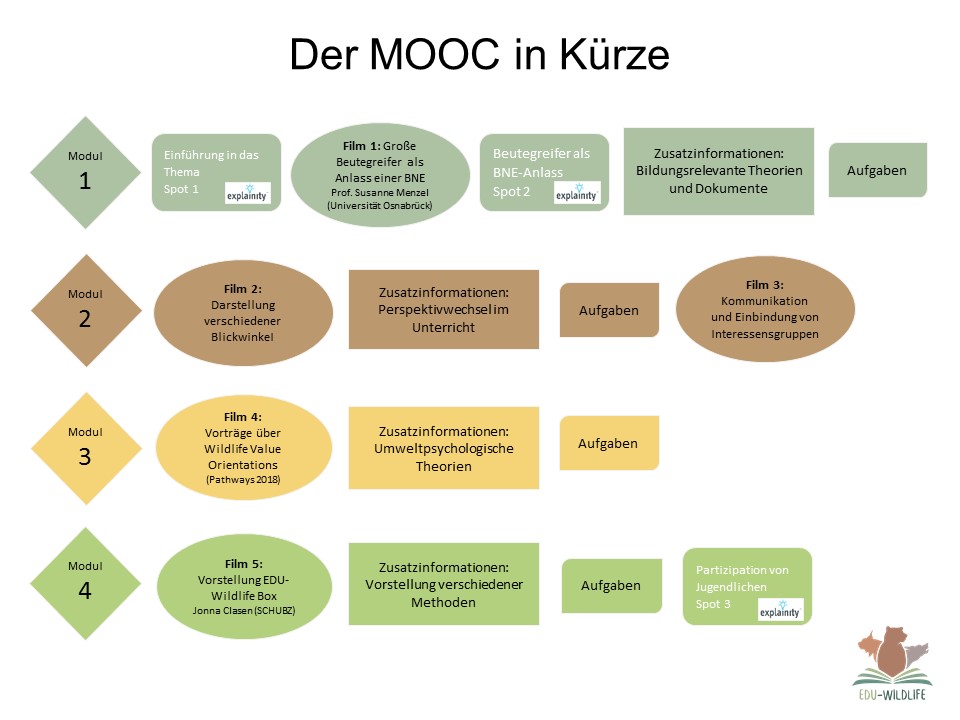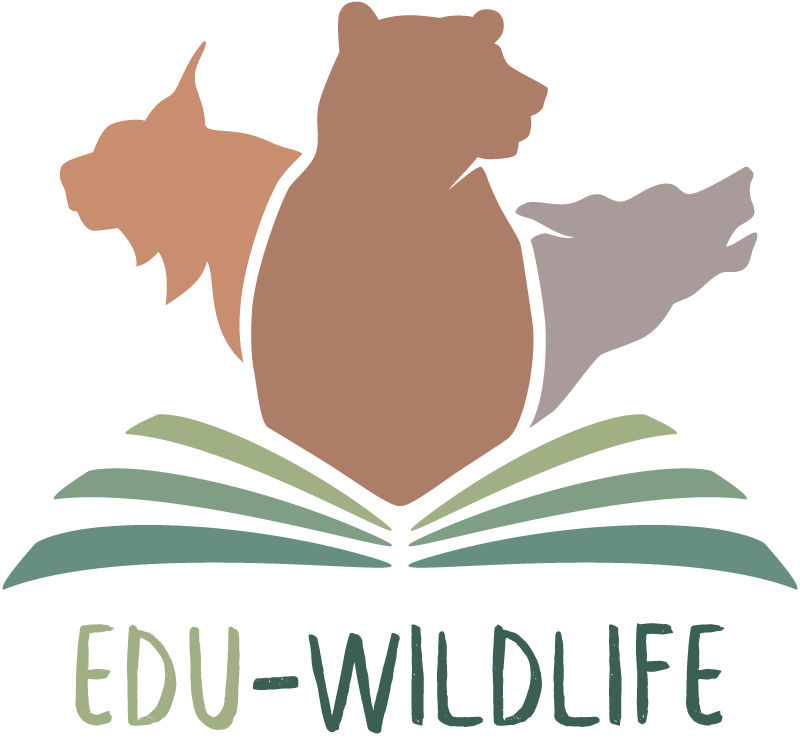Introduction to EDU-Wildlife MOOC Forum
Salutation
We would like to offer a friendly and informal atmosphere here in the MOOC and exchange ideas with all participants on an equal footing. We want to support collaborative and voluntary learning, presupposing mutual respect.
Why this MOOC?
We would like to motivate you to integrate the topic of "large predators in modern Europe" into your educational activities. The topic is suitable for an exciting, realistic lesson, whether it be with your class or recreational group, with a working group or during project week. How do children and young people want to deal with wolves, bears and lynx? What consequences do their ideas have for them, for others, for the region, for the animal? And what perspectives should be considered? The aim of the MOOC is to facilitate introduction to the topic by preparing you for the related educational activities in terms of content and methodology.
Target Audience
Particularly suitable for:
- Environmental education officers
- Teachers
- Education officers
- Civic-minded citizens
Content
The MOOC is a digital learning platform and consists of 4 learning units/modules. These are further divided into small lessons. It is a self-study course consisting of explanatory videos, educational films and background information.

What can you expect? General information about the Massive Open Online Course (MOOC)
In Europe, the populations of large predators such as wolves, bears and lynx are recovering and they are returning to their traditional habitats. European nature conservation agreements enable them to spread across national borders. This is seen as a success for nature conservation, but there are also people who take a critical view. Since they are future decision-makers, we should enable children and young people to understand the controversial social discussions. They are the farmers, nature conservationists and politicians of tomorrow.
In the EDU-Wildlife MOOC you will find suggestions on how to deal with the topic with children and young people, how to change perspectives and how to develop proposals for solutions.
You will find methodical suggestions and background information in our EDU-Wildlife MOOC! Get active with your learning group and implement your own creative ideas.
Tasks
The MOOC sets tasks. Think about how this topic affects you personally - what is your idea of a low-conflict relationship with wolves, bears and lynx? Enrich the lessons with different perspectives and explore with the children and young people how coexistence can succeed.
Learn Together – Forum and Workshop
Share your experiences with other MOOC participants. Ask us questions or find out about the activities of others simply and straightforwardly. Tasks that you post in the Forum are public; please note the personal rights of pupils here, especially for photos.
Only the EDU-Wildlife team sees the tasks that are uploaded to the Workshop.
Time
You should plan 6 hours for each module. You can go at your own pace; we do not set a fixed time schedule.
Certificate
If you would like a certificate, please register for the complete MOOC using your contact details. We shall treat the data confidentially and exclusively for the project in accordance with the new EU GDPR. You will be guided through the MOOC and will carry out short examinations at the end. If you pass you will receive a certificate of further education from us.










